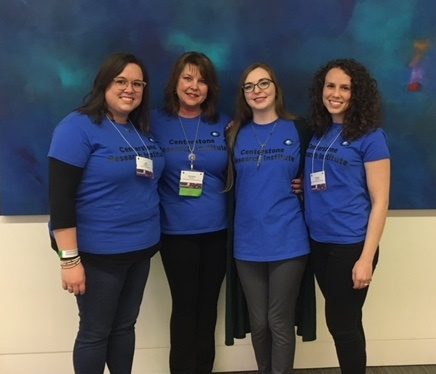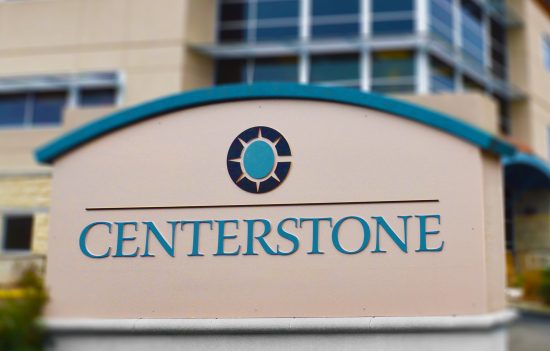Our Research
Centerstone’s Institute generates and shares knowledge about client needs and effective service approaches gained through evaluating innovative programs and projects.
Recent and Selected Publications
Click each topic to find associated publications
Assertive Community Treatment
Morse, G., Monroe-DeVita, M., York, M. M., Peterson, R., Miller, J., Hughes, M., Carpenter-Song, E., Akiba, C., & McHugo, G. J. (2020). Implementing illness management and recovery within assertive community treatment teams: A qualitative study. Psychiatric Rehabilitation Journal, 43(2), 121–131. https://doi.org/10.1037/prj0000387
Monroe-DeVita, M., Morse, G., Mueser, K., McHugo, G., Haiyi, X., Haligren, K., Peterson, R., Miller, J., Akiba, C., York, M. (2018). Implementing Illness management and recovery within Assertive Community Treatment: A pilot trial of feasibility and effectiveness. Psychiatric Services (69) 562-571/ https://doi.org/10.1176/appi.ps.201700124
Morse, G., Glass, A., Monroe-DeVita, M. (2015). ACT and recovery: What we know about their compatibility. Administration and Policy in Mental Health, 42. https://doi.org/10.1007/s10488-015-0631-3.
Morse, G. A., Dell, N. A., Murphy, A. M., & Stewart, M. (2022). Happiness, Well-Being, and Recovery: Experiences of Adults Receiving Psychiatric Rehabilitation Services. Psychiatric Rehabilitation Journal. Advance online publication. https://dx.doi.org/10.1037/prj0000521
Dell, N. A., Maynard, B. R., Murphy, A. M., Stewart, M. (in press). The conduct of systematic reviews: An application of sociotechnical systems theory. Journal of the Society for Social Work and Research.
Services for People who are Experiencing Homelessness
Morse, G., York, M., Dell, N., Blanco, J., & Birchmier, C. (2017). Improving outcomes for homeless people with alcohol disorders: a multi-program, community-based approach. Journal of Mental Health, https://doi.org/10.1080/09638237.2017.1340617
Morse, G.A., Calsyn, R. J., Klinkenberg, W. D., Helminiak, T.W., Wolff, N., Drake, R. E., Lama, G., Lemming, M. R., McCudden, S. (2006). Treating Homeless Clients with Severe Mental Illness and Substance Use Disorders: Costs and Outcomes. Community Mental Health Journal, 42, 377-404. https://doi.org/10.1007/s10597-006-9050-y
Wolff, N., Helminiak, T.W., Morse, G.A., Calsyn, R.J., Klinkenberg, W.D., & Trusty, M.L. (1997). A cost- effectiveness evaluation of three approaches to case management for homeless mentally ill clients. American Journal of Psychiatry, 154, 341-348. https://doi.org/10.1176/ajp.154.3.341
Morse, G.A., Calsyn, R.J., Klinkenberg, W.D., Trusty, M.L., Gerber, F., Smith, R., Tempelhoff, B., & Ahmad, L. (1997). An experimental comparison of three types of case management for homeless mentally ill persons. Psychiatric Services, 48, 497-503. https://doi.org/10.1176/ps.48.4.497
Morse, G.A., Calsyn, R.J., Miller, J., Rosenberg, P., West, L., & Gilliland, J. (1996). Outreach to homeless mentally ill people: Conceptual and clinical considerations. Community Mental Health Journal, 32, 261-274. https://doi.org/10.1007/bf02249427
Morse, G.A., Calsyn, R.J., Allen, G., Tempelhoff, B., & Smith, R. (1992). Experimental comparison of the effects of three treatment programs for homeless mentally ill people. Hospital & Community Psychiatry, 43, 1005-1010. https://doi.org/10.1176/ps.43.10.1005
Nishith, P., Huang, J., Morse, G., Dell, N., Murphy, A.M., & Mueser, K.T. (2022). A test of self-medication hypothesis for drug use in homeless persons: The role of severe mental illness. Journal of Social Distress and Homelessness. https://doi.org/10.1080/10530789.2022.2025704
Services for People with Serious Mental Illness and PTSD
Nishith, P., Mueser, K. T., & Morse, G. A. (2015). A brief intervention for posttraumatic stress disorder in persons with a serious mental illness. Psychiatric Rehabilitation Journal, 38(4), 314–319. https://doi.org/10.1037/prj0000158
Nishith, P., Huang, J., Morse, G., Dell, N., Murphy, A.M., & Mueser, K.T. (2022). A test of self-medication hypothesis for drug use in homeless persons: The role of severe mental illness. Journal of Social Distress and Homelessness. https://doi.org/10.1080/10530789.2022.2025704
Dell, N.A., Murphy, A.M., Stewart, M., Sasaki, N., Klier, M. (2022). Promoting recovery among older adults with serious mental illness. Social Work, 67(2), 184-190. https://doi.org/10.1093/sw/swac003
Provider Burnout and Wellness
Morse, G. A. & Dell, N. A. (2021). The well-being and perspectives of community-based behavioral health staff during the COVID-19 pandemic, Social Work in Health Care, DOI: 10.1080/00981389.2021.1904315
Morse, G.A., Salyers, M.P., Rollins, A.L., Monroe-DeVita, M., & Pfahler, C. (2012). Burnout in mental health services: A review of the problem and its remediation. Administration and Policy In Mental Health and Mental Health Services Research, 39, 341-352. https://doi.org/10.1007/s10488-011-0352-1
Salyers, M.P., Hudson, Morse, G.A., C., Rollins, A., Monroe-DeVita, M., Wilson, C., Freeland, L. (2011). Breathe: A pilot study of burnout reduction in mental health professionals. Psychiatric Services, 62, 214-217. https://doi.org/10.1176/ps.62.2.pss6202_0214
Recovery and Wellbeing
Dell, N. A., Long, C., & Mancini, M. A. (2021). Models of mental health recovery: An overview of systematic reviews and qualitative meta-syntheses. Psychiatric Rehabilitation Journal. Advance online publication. https://doi.org/10.1037/prj0000444
Mental and Behavioral Health Experiences for At-Risk Groups
Vaughn, M. G., Dell, N. A., Long, C., Qian, A., DeLisi, M. (2023). Prevalence and correlates of knife-related victimization: Insights from the 2019 Nationwide Emergency Department Sample. Preventive Medicine, 175. https://doi.org/10.1016/j.ypmed.2023.107680
Publications focused on Older Adult Population
Dell, N. A, Sasaki, N., Stewart, M., Murphy, A.M., & Klier, M. (2020). Service needs of older adults with serious mental illness. Journal of Gerontological Social Work, 63:6-7, 659-661. https://doi.org/10.1080/01634372.2020.1765064
Dell, N. A, Huang, J., Buttafucco, K.A, Vidovic, K. R., Murphy, A.M., & Farrar, L.A. (2020). Direct and indirect associations between loneliness and thoughts of self-harm among a clinical sample of older adults with serious mental illness. The Journal of Nervous and Mental Disease, 208(10), 828-832). https://doi.org/10.1097/nmd.0000000000001213
Dell, N. A., Pelham, M., & Murphy, A. M. (2019). Loneliness and depressive symptoms in middle aged and older adults experiencing serious mental illness. Psychiatric Rehabilitation Journal, 42(2), 114-120. https://doi.org/10.1037/prj0000347
Dell, N.A., Murphy, A.M., Stewart, M., Sasaki, N., Klier, M. (2022). Promoting recovery among older adults with serious mental illness. Social Work, 67(2), 184-190. https://doi.org/10.1093/sw/swac003
Conference Presentations
Selected presentations at national professional conferences.
-
2020 Vidovic, K. R., Dell, N. A., Murphy, A.M. Correlates of emotional and social loneliness among persons with serious mental illness.
Poster presentation • Society for Social Work Research Annual Conference, Washington, DC
-
2019 Dell, N.A., Maynard, B.R., Stewart, M., & Murphy, A.M. Systematic review software: An exploration of core functionality and risks of automation bias.
Poster presentation • Society for Social Work Research Annual Conference, San Francisco, CA
-
2019 Pelham, M., Dell, N.A., & Murphy, A.M. Associations between social isolation, emotional loneliness, and depressive symptoms in adults with serious mental illness.
Poster presentation • Society for Social Work Research Annual Conference, San Francisco, CA
Collaborate with Us
Illume: The Behavioral Health Center of Excellence can consult and assist other providers with designing and implementing program evaluation studies and outcome management systems. Please contact Illume Director Cara Zitko for more information.







